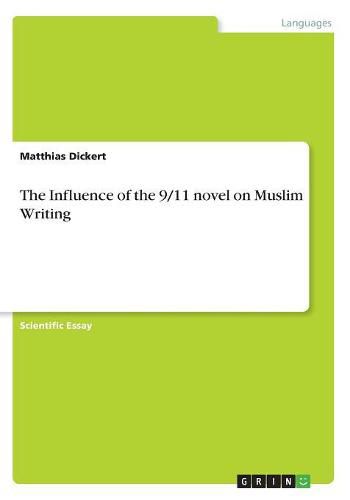Readings Newsletter
Become a Readings Member to make your shopping experience even easier.
Sign in or sign up for free!
You’re not far away from qualifying for FREE standard shipping within Australia
You’ve qualified for FREE standard shipping within Australia
The cart is loading…






Scientific Essay from the year 2017 in the subject English - Literature, Works, Johannes Gutenberg University Mainz, language: English, abstract: Since 9/11 many Muslims struggle with their identity and are exposed to xenophobia, violence, vicious defamation, harassment or displacement. In short the notion ‘Muslim’ in relation to that day has become a stigma. It is against this background and the post-traumatic aftermath of September 11, 2001 where many novelists disposing of a Muslim background wrote their novels. The logical consequence from this was that Muslim writing as such has become more complex stressing the standpoints of hearer and teller as elements of distortion. Interesting though is the fact that some novels dealing with Islam and Muslim characters have taken up and used the Oriental stereotypes where Muslims are - according to Said - seen as ‘either oil suppliers or potential terrorists’. For a long time Muslim characters in literature have been connected to this negative image which Said also labels as ‘other’ and Spivak as ‘subaltern’. The ‘hybrid’ in which many Muslim characters are often set is also (still) equated with the ‘exotic’ thus ignoring the energy of Bhabha’ s term and its positive realizations in fiction. It is therefore one aim of this essay to throw light on this matter and to shortly reflect the present influence of 9/11 on Muslim writing.
$9.00 standard shipping within Australia
FREE standard shipping within Australia for orders over $100.00
Express & International shipping calculated at checkout
Scientific Essay from the year 2017 in the subject English - Literature, Works, Johannes Gutenberg University Mainz, language: English, abstract: Since 9/11 many Muslims struggle with their identity and are exposed to xenophobia, violence, vicious defamation, harassment or displacement. In short the notion ‘Muslim’ in relation to that day has become a stigma. It is against this background and the post-traumatic aftermath of September 11, 2001 where many novelists disposing of a Muslim background wrote their novels. The logical consequence from this was that Muslim writing as such has become more complex stressing the standpoints of hearer and teller as elements of distortion. Interesting though is the fact that some novels dealing with Islam and Muslim characters have taken up and used the Oriental stereotypes where Muslims are - according to Said - seen as ‘either oil suppliers or potential terrorists’. For a long time Muslim characters in literature have been connected to this negative image which Said also labels as ‘other’ and Spivak as ‘subaltern’. The ‘hybrid’ in which many Muslim characters are often set is also (still) equated with the ‘exotic’ thus ignoring the energy of Bhabha’ s term and its positive realizations in fiction. It is therefore one aim of this essay to throw light on this matter and to shortly reflect the present influence of 9/11 on Muslim writing.